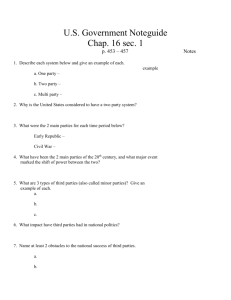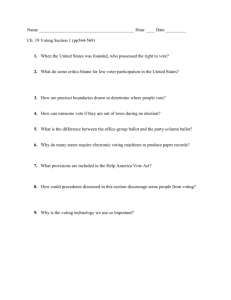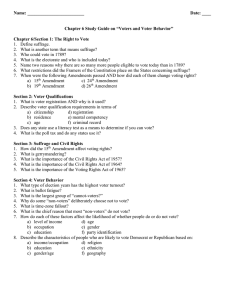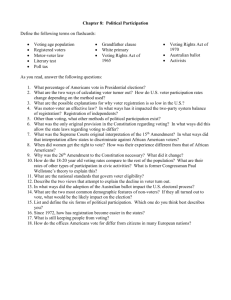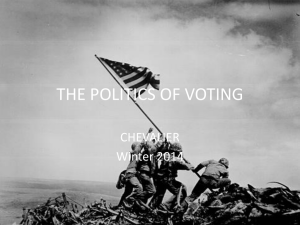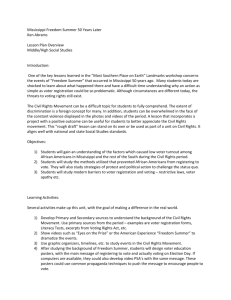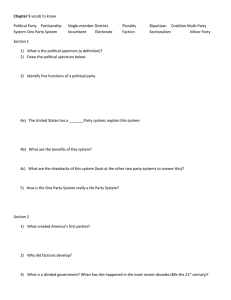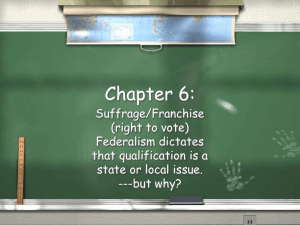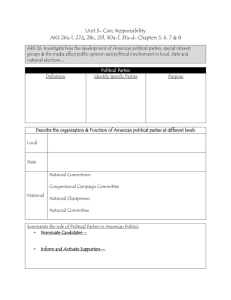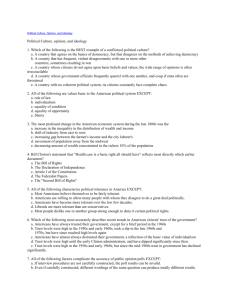CHAPTER 6 OPEN BOOK TEST Multiple Choice Identify the letter of
advertisement
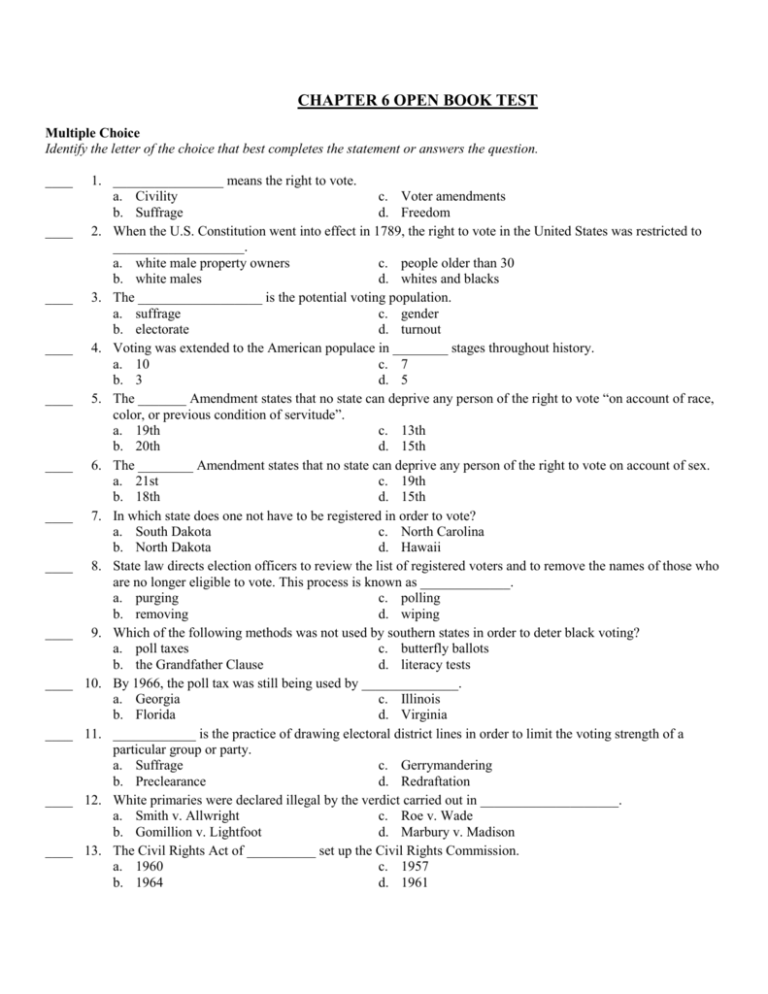
CHAPTER 6 OPEN BOOK TEST Multiple Choice Identify the letter of the choice that best completes the statement or answers the question. ____ ____ ____ ____ ____ ____ ____ ____ ____ ____ ____ ____ ____ 1. ________________ means the right to vote. a. Civility c. Voter amendments b. Suffrage d. Freedom 2. When the U.S. Constitution went into effect in 1789, the right to vote in the United States was restricted to ___________________. a. white male property owners c. people older than 30 b. white males d. whites and blacks 3. The __________________ is the potential voting population. a. suffrage c. gender b. electorate d. turnout 4. Voting was extended to the American populace in ________ stages throughout history. a. 10 c. 7 b. 3 d. 5 5. The _______ Amendment states that no state can deprive any person of the right to vote “on account of race, color, or previous condition of servitude”. a. 19th c. 13th b. 20th d. 15th 6. The ________ Amendment states that no state can deprive any person of the right to vote on account of sex. a. 21st c. 19th b. 18th d. 15th 7. In which state does one not have to be registered in order to vote? a. South Dakota c. North Carolina b. North Dakota d. Hawaii 8. State law directs election officers to review the list of registered voters and to remove the names of those who are no longer eligible to vote. This process is known as _____________. a. purging c. polling b. removing d. wiping 9. Which of the following methods was not used by southern states in order to deter black voting? a. poll taxes c. butterfly ballots b. the Grandfather Clause d. literacy tests 10. By 1966, the poll tax was still being used by ______________. a. Georgia c. Illinois b. Florida d. Virginia 11. ____________ is the practice of drawing electoral district lines in order to limit the voting strength of a particular group or party. a. Suffrage c. Gerrymandering b. Preclearance d. Redraftation 12. White primaries were declared illegal by the verdict carried out in ____________________. a. Smith v. Allwright c. Roe v. Wade b. Gomillion v. Lightfoot d. Marbury v. Madison 13. The Civil Rights Act of __________ set up the Civil Rights Commission. a. 1960 c. 1957 b. 1964 d. 1961 ____ 14. Which of the following answer choices does not reflect a duty of the Civil Rights Commission? a. The Commission had to report voter fraud c. The Commission had to report its findings to the governors of northern states. through the media and to the public. b. The Commission had to report to d. Both A and C. Congress and the President. ____ 15. The Civil Rights Act of ___________ provided for the appointment of _____________. a. 1964, federal voting referees c. 1960, local judges b. 1960, federal voting referees d. 1964, local judges ____ 16. The Civil Rights Act of ___________ forbad the use of any voter registration or literacy requirement in an unfair or discriminatory manner. a. 1960 c. 1964 b. 1961 d. 1986 ____ 17. Dr. Martin Luther King, Jr. set up a voter registration drive in _________________. a. Selma, Alabama c. Jackson, Mississippi b. Montgomery, Alabama d. Baton Rouge, Louisiana ____ 18. A(n) __________ is a court order that either compels or restrains the performance of some act by a private individual or by a public official. a. judicial review c. force license b. verdict d. injunction ____ 19. _____________ must be given by the U.S. Department of Justice for any new election laws that are passed by the states. a. Authority c. Aforementioned judgment b. Preclearance d. Post-requisition ____ 20. Only about _____________ of the American electorate actually votes in presidential elections. a. half c. one-fourth b. two-thirds d. three-fourths
